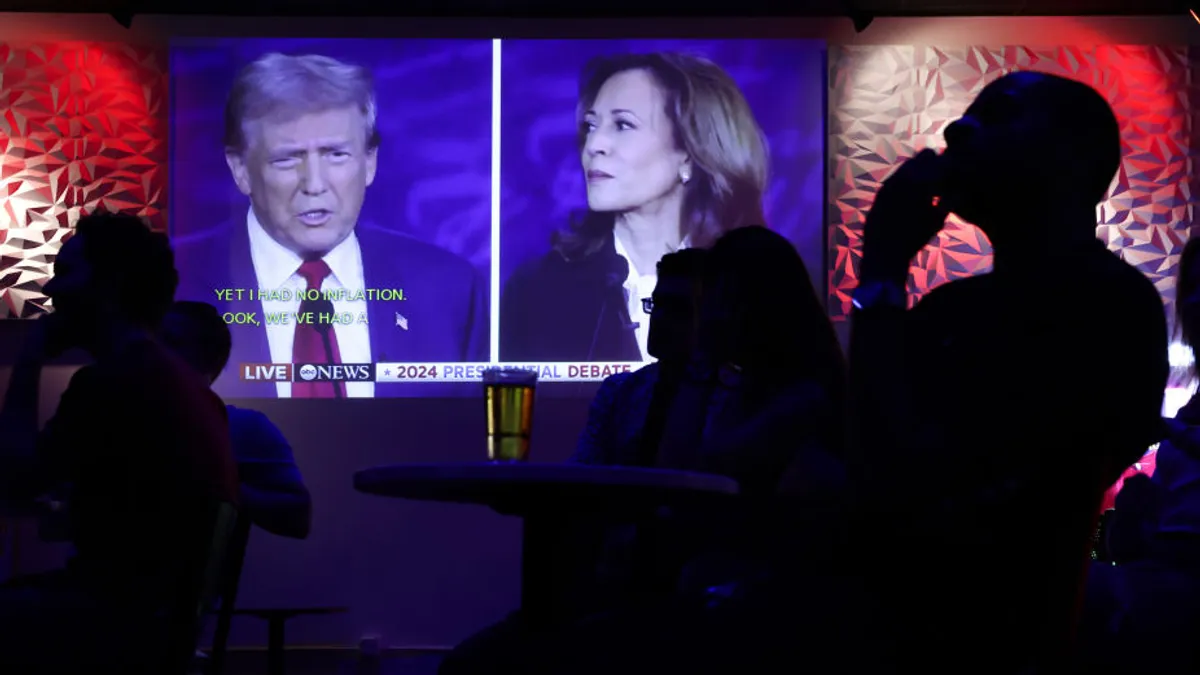Dive Brief:
- A group of shareholder advocates sent a letter to the U.S. Securities and Exchange Commission’s Investor Advisory Commission last week, urging it to defend the current shareholder proposal process from attacks and back investor resolutions raising concerns on issues such as climate risk and artificial intelligence.
- The Shareholder Rights Group — whose members include nonprofits As You Sow, Ceres and the Interfaith Center on Corporate Responsibility, as well as the nation’s largest federation of unions — sent the letter Thursday, after the IAC explored proxy proposals and the implications of ExxonMobil’s lawsuit against Arjuna Capital at a meeting last month.
- “The focus on shareholder proposals merits continued engagement by the Committee,” the Oct. 24 letter said. “Shareholder proposals are a vital right of shareholders, and we urge the Committee to defend these rights against current and what we believe to be misguided and misleading assaults.”
Dive Insight:
The Shareholder Rights Group — whose members also include the American Federation of Labor and Congress of Industrial Organizations, Trillium Asset Management and Arjuna Capital — sent the letter to address questions concerning the shareholder proposal process that arose during the Investor Advisory Committee’s Sept. 19 meeting.
IAC explored whether the current shareholder proposal process is working, in light of Exxon sidestepping the typical SEC-run no-action process companies take to get proposals excluded when it filed a lawsuit against Arjuna and Netherlands-based Follow-This over a shareholder proposal related to an emissions reduction target. While the conversation began with the now-dismissed case, the agenda grew to include questions about whether companies are being flooded with proposals and the quality of the proposals that get voted on.
Shareholder Rights Group’s Oct. 24 letter said the initial intent of the meeting — the securities implications of Exxon’s lawsuit — “certainly merits the attention of the committee,” as it could have a “chilling effect on investors’ ability to raise material concerns with our companies through the shareholder proposal process.”
“Investors file shareholder proposals that they believe address important concerns,” the letter said. “Voting outcomes provide a practical assessment of whether a significant number of the company’s other investors also view the issues as important. In this way, the company is able to gauge the collective voice of all of its investors, not just the largest investors that they may otherwise be engaging with, and take that collective view into account.”
When opening the IAC meeting last month, SEC Chair Gary Gensler and Commissioner Hester Peirce both touched on the shareholder proposal process. Gensler said in prepared comments at the time that debates about which proposals should be included or excluded have gone on “for decades,” and the no-action process, known as Rule 14a-8, has been “amended from time to time since.”
Peirce said “shareholder proposals are still very much a live issue” and asked the IAC to consider how to ensure “that the voices of non-proposing shareholders are heard in conversations about shareholder proposal thresholds.”
At the meeting, former SEC Commissioner Robert Jackson, now a professor at NYU School of Law, claimed that he came across a company with “30 or 40” shareholder proposals in its proxy statements when reviewing for the meeting. The Shareholder Rights Group said in an appendix to its letter that, to its knowledge, “there is no company that received that many proposals for a proxy statement.”
The letter noted that while a record number of shareholder proposals were voted on again in 2024, the rise has been attributed to an increase in anti-ESG proposals for the first time. The group also noted that companies ramped up their use of the no-action process in 2024.
Earlier this year, a group of state finance officials and pension fund trustees criticized Exxon for side-stepping the SEC’s no-action process and directly taking Arjuna Capital and Follow This to court. Historically, companies that are looking to have shareholder proposals excluded from the proxy ballot approach the agency, which frequently provides relief.
The Thursday letter from the shareholder advocates noted that the SEC has granted 141 of the 267 no-action process requests it received this year.
“The SEC’s Rule 14a-8 and the SEC Staff’s administration is a dynamic process,” the letter said. “By and large it is working effectively to allow shareholders to express our collective voice on important issues and to screen out inappropriate proposals.”













